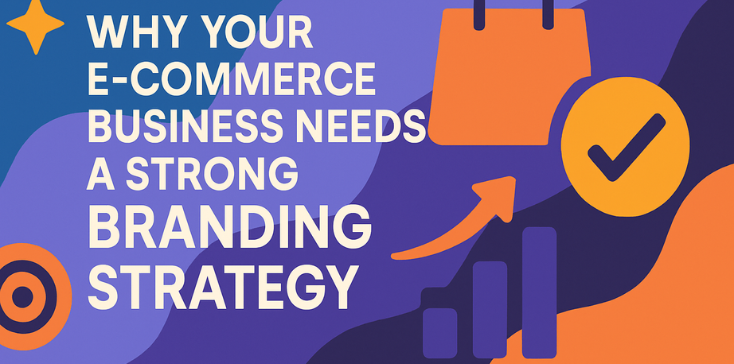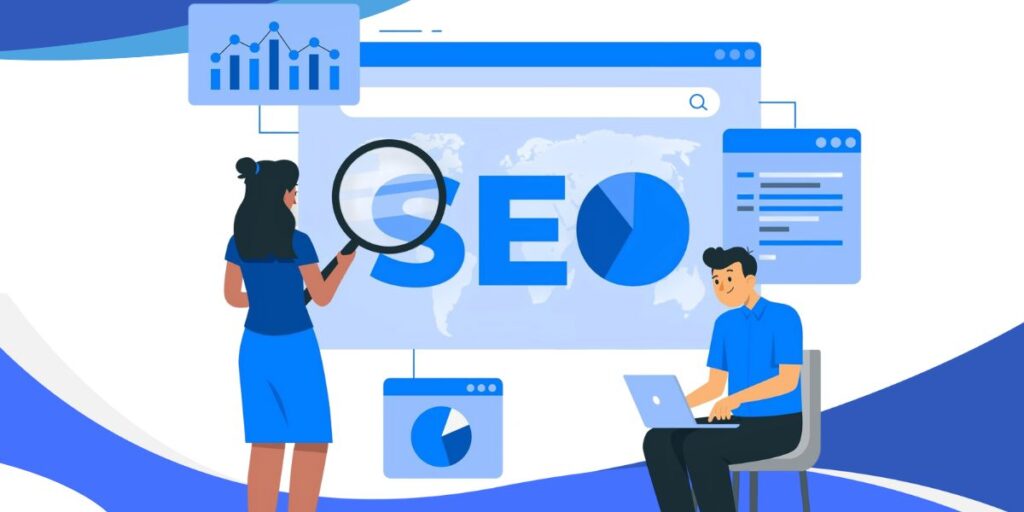E-commerce is always ready to adapt to new trends and has a broader structure of marketing. In 2023 there were 289 million online shoppers in India. With a projection of reaching $325 billion by 2030, e-commerce is spreading worldwide to make online shopping more comfortable. The future of e-commerce Retail is higher than our expectations. Globally everyone is using online platforms to make their shopping easier.
Let’s step into the Ecommerce Marketing Trends in 2025
Step into the lively world of e-commerce where innovation meets consumer behavior. From AI tools to social shopping, 2025 is redefining how brands connect and convert.
1. Experiential Commerce
Experiential Commerce is one of the most has widely changed customer experience in shopping, making your product useful for your customers even when they are yet to buy it.
How?
Through 3D animation, virtual try-ons present your product in its best way so they can visualize their product and how it will look on them or in their home or office. This type of experience will make them more comfortable with your product.
Now the audience doesn’t just browse things they are eager to know about; what they are buying is something that they will love or not.
Augmented Reality and Virtual Reality — in short, AR and VR:
- AR uses the real world.
- VR is virtual.
These ideas are adapted by e-commerce marketing agency owners.
2. EEAT
EEAT stands for Expertise, Authoritativeness, Trustworthiness. Google shows you content that is EEAT. Google will always make sure that the audience gets the right information.
Let’s learn about these three factors:
- Experience: Experience is examples of real-life people or experts for particular topics who are included in your blog. Google will also have trust in our content if we use real-life examples. It makes people more interested in our topic and they trust our brand.
- Expertise: Expertise includes safety-related subjects, detailed product information, comprehensive buying guides, and thorough explanations that demonstrate specialized knowledge.
- Authoritativeness: Authoritativeness refers to the recognition and reputation that a brand, content creator, or company has established in their industry or niche. It’s about being recognized by others in our field.
- Trustworthiness: Trustworthiness refers to the perceived reliability, honesty, and transparency of your e-commerce website and brands.
3. Social Commerce
Social commerce means having all your social media sites have links so your audience doesn’t have an issue while shopping. Every single platform that we are available on should have your website link so that our audience doesn’t have time to be distracted by some other topic or work.
They should be focused on your brand. This ecommerce marketing strategy works most of the time when the audience is genuine. Social commerce is an easier way of finding products online.
4. Personalization
Personalization helps you to have a conversation with your audience. It helps you to understand your audience’s choice as well.
Personalization is creating messages, emails, and queries according to the audience.
Ex: Hey, we know you are hungry — it’s 40% off on burgers. Let’s grab the deal!
The more you become creative, the more your audience will interact with you and your products. They will find things attractive and have creative thoughts about your product.
5. Omnichannel Enhancement
The most important things for customer engagement are visibility, measurement, personalization, and optimization.
The three most valuable aspects of omnichannel are:
- Integration
- Automation
- Artificial Intelligence
Omnichannel refers to integrating social media and websites together so that your audience can easily open your website anywhere. Omnichannel takes your brand to a whole another level. The more you improve your omnichannel, the easier it will be for your brand to level up business.
6. Local SEO
Local SEO means search in the area where your business is located. Google shows your business in the top search in your area so that people in your area should have knowledge about your business.
Secure your citations and links to create SEO for your area. Add location to your content so that Google can understand your location and show it to your audience.
Local SEO is like one accurate keyword that can help you show results to multiple audiences.
7. Adaptation of new trends in AI, VR, and AR
Adaptation of new trends in AI, VR, and AR in evolving business areas of e-commerce will show our audience a better way of looking at our product.
E-commerce will soon have a great expansion and there will be many competitors. You need to find the best AI tools to be used in your company to make your e-commerce more presentable and creative so that people can connect with your product.
8. Products Short-form videos
In ecommerce marketing trends to focus on Millennial and Gen Z audiences this is short-form videos on every social media platform.
Short-form videos helps you increase your reach more people, audience and buyers.
We have to run with new ecommerce marketing trends, understand more about the market.
Conclusion
E-commerce marketing is taking over the world. Understanding marketing strategies, adapting new methods, and getting ready to compete — it’s interesting to adapt new things for our good.
Even if it’s hard for you to find the best marketing agency that can help you with your e-commerce strategies and can handle everything smartly…
The creative team of Growwithba is ready to cope up your business.
Ecommerce Marketing Trends FAQs
1) What are the ecommerce content Marketing Trends in 2025?
In the future, ecommerce content marketing will increasingly focus on personalization, AI tools, and AI-powered work tools. Generative AI, more short-form videos, more targeting of the Millennial and Gen Z audience, and more focus on social media marketing platforms like Instagram, Facebook, and LinkedIn will be used for promotion and sales.
2) What should I sell in 2025?
We can sell products of your choice. We just need to focus on our marketing. Here are a few trending products:
- AI-powered smart devices and home gadgets
- Skincare
- Clothing brands
- Digital marketing
- Healthy food etc.
3) What are the future trends in e-commerce 2025?
Social shopping is not future of e-commerce it is current ecommerce marketing trends in 2025. Platforms like Instagram, Facebook, and Pinterest will evolve more for marketing purposes where users can find new products, explore new things, and purchase products of their choice from anywhere.
4) What is the Future of Marketing in 2025?
AI is becoming a cornerstone of marketing — from automating tasks to creating more personalized and impactful campaigns. The future of marketing will lean more and more towards AI tools.
5) What is the Brand Trend in 2025?
Personalized experience — which means to create creativity by our own ideas when we send WhatsApp messages, normal messages, or emails to our audience. It should be personalized in such a creative way that our audience should feel we are interacting or having a conversation with them.
![BA LOGO 2[1] Logo](https://growwithba.com/wp-content/uploads/elementor/thumbs/BA-LOGO-21-rctdwc6e44k0gscol760abdhmupxvrcikanaiw5kow.png)



